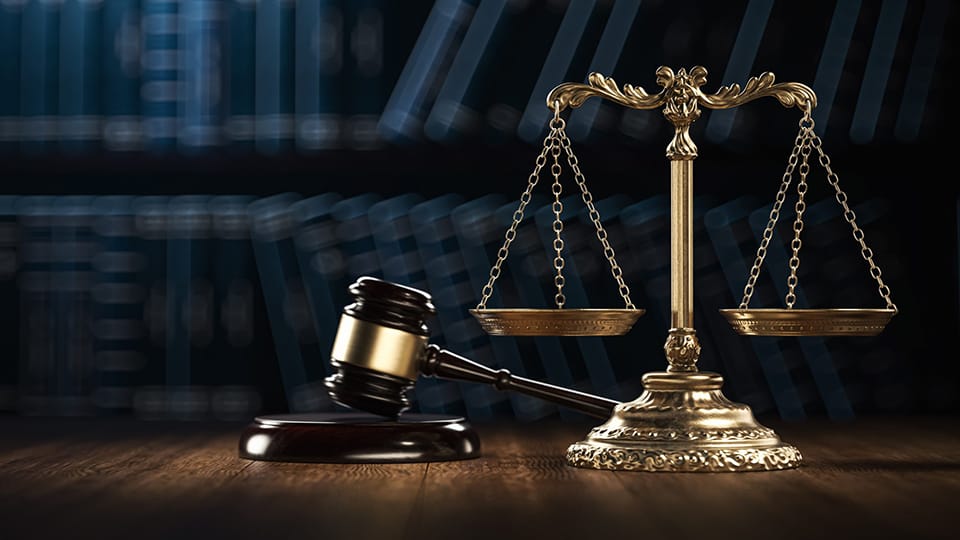Shift to online continuing education causing financial crunch for bar associations
Subscriber Benefit
As a subscriber you can listen to articles at work, in the car, or while you work out. Subscribe Now
The shift from in-person to online continuing legal education classes for attorneys is causing financial headaches for the state’s local bar associations.
The preference for online learning took hold during the pandemic and has stayed in place due to its convenience and the plethora of video classes being offered for free, attorneys say.
For years, some local bar associations depended on revenue generated from their in-person classes. But now they are looking for ways to adjust.
Allen County Bar Association President Sarah Beiswanger said continuing legal education, or CLEs, previously accounted for 51% of the organization’s income. Now, it’s 26%.
“It seems that now, basically four years [after the height of the pandemic] that it’s just going to stay basically at that same amount, which is what it is, but it just is going to take a major recalibration of income in order to figure out how to make the budget work for the foreseeable future,” Beiswanger said.
She said it has been a struggle to figure out what they do to replace that income or what kind of cuts they need to make.
The association plans to do strategic planning to figure out its next steps. It has also connected with the Allen County Bar Foundation to see how it can help.
Beiswanger said at the moment the association has implemented a hybrid in-person/online model with its CLEs. The challenge is keeping those online engaged.
Evansville Bar Association President Greg Freyberger echoed Beiswanger’s concerns.
He said the switch to online has decreased revenue for the association.
Freyberger has also felt a greater lack of networking in the legal community as a result.
“I question the real long term effect that not being in person with other members of the bar, especially more senior members of the bar, is going to have on the profession,” Freyberger said.
He also wonders how much attorneys are retaining by completing their required CLE hours online.
“The real issue is, if we’re going to require attorneys to have continuing education, which I think we shouldn’t be allowing them to somewhat sidestep the retention of the information by just sitting at a computer and hitting buttons without really being involved, I think is contradictory,” Freyberger said.
CLE requirements
Attorneys and judges are required to attend at least six hours of approved CLE per year and at least 36 hours of approved CLE per three-year cycle.
Also, attorneys and judges are required to take at least three hours of ethics credit anytime within the three-year cycle.
Additionally, newly admitted attorneys are required to attend an approved, six-hour “Applied Professionalism” program in lieu of the ethics requirement in their first three-year cycle.
Indiana became the 18th state to require attorneys to receive CLE in 1986.
The rules for CLEs remained unchanged until the global pandemic.
Initially, the Indiana Supreme Court waived the limits on distance learning temporarily in 2020. Then in 2022, the change was made permanent, lifting the cap on how many hours attorneys can take of online CLEs.
The Evansville Bar Association is trying to make its in-person CLEs more of a draw for attorneys in the area.
Recently, it held a trip to St. Louis where everyone participated in a CLE on the bus ride there.
“That’s always a fun thing to do, and it’s like anything in education, if you can make it entertaining and make people interested in it, and it’s pretty easy to retain that knowledge,” Freyberger said.
Indianapolis Bar Association Vice President of Legal Education Peter Elliott said the switch to online hasn’t had a huge impact on his organization’s revenue.
He did say, however, the association sees its role in providing CLEs as an opportunity to fill a mentoring gap.
“There’s been a big impact to young lawyers,” Elliott said. “We’ve seen a decrease in mentoring. Online doesn’t have that pipeline to encourage lawyers to get involved.”
State bar association
Kristin Owens, CLE Director for the Indiana State Bar Association, said they were anticipating the switch to online even before the pandemic.
But she said the shift hasn’t affected the organization financially because it wasn’t dependent on CLEs for income.
“We were investing in some learning management systems and things like that. So we were really prepared and ready to make that switch when it happened,” Owens said.
She added that since the association serves the whole state, it gave them a more broad reach with some of their members.
Owens said the association acknowledges that in-person CLEs are important and they try to ensure when a CLE is in-person it is a topic that Hoosiers cannot get anywhere else.
“That’s where you make your connections and you develop those relationships and networks,” Owens said.
She noted that there are times when they only have four people show up to an in-person CLE
“Those four people got a good quality experience versus some topics and some programs don’t translate well to online learning. You need engagement, you need group activities, things like that. So you just have to really be more intentional when you plan now to think through all those lenses,” Owens said.
She said she doesn’t think online is going to replace in-person CLEs altogether, but people do value that convenience as much as they value the connections they make in-person.
“I think they both are going to play an equal importance in how we move forward,” Owens said.
